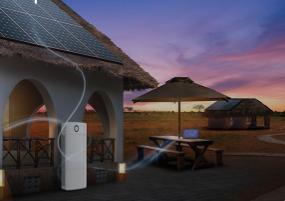As the world pivots towards sustainable energy solutions, the spotlight on solar power continues to shine. Homeowners increasingly turn to solar panels to harness the sun's abundant energy. However, the efficiency of a solar power system goes beyond just the panels. Upgrading to a modern solar power inverter can unlock myriad benefits, enhancing your solar setup's overall performance. In this article, we'll explore five key advantages of switching to an advanced solar power inverter for your home.
Increased Energy Efficiency through Advanced Technology
One of the primary benefits of upgrading to a modern solar power inverter is the integration of advanced technologies. Traditional inverters operate on a fixed algorithm, often leading to suboptimal performance in varying environmental conditions. However, many modern inverters come equipped with Maximum Power Point Tracking (MPPT) technology.
MPPT technology ensures that your solar panels operate at their peak efficiency by dynamically adjusting the operating point. This means that regardless of factors like shading, temperature fluctuations, or changes in sunlight intensity, your solar panels will consistently produce the maximum amount of electricity possible. The result is a significant boost in energy efficiency, translating to more power generated and increased savings on your energy bills.

Enhanced System Monitoring and Diagnostics
Upgrading to a modern solar inverter for home allows homeowners to monitor and diagnose their solar power system in real-time. Many advanced inverters have built-in monitoring systems that offer detailed insights into energy production, system efficiency, and potential issues.
Having access to this data allows homeowners to identify and address issues promptly. Whether it's a malfunctioning panel, shading problems, or other performance issues, the monitoring system provides a comprehensive overview of your system's health. By taking preventative measures to maintain your system, you can maximize the long-term return on your investment and guarantee that your solar power system functions at peak performance.

Compatibility with Smart Home Technology
In an era of smart homes and interconnected devices, compatibility is key. Upgrading to a modern solar power inverter often means embracing a device that seamlessly integrates with smart home technology. Many advanced inverters can be monitored and controlled remotely through smartphone apps or online platforms.
This connectivity level empowers homeowners to manage their solar power system easily. Whether it's adjusting settings, monitoring energy production, or receiving real-time alerts, integrating smart technology adds convenience and control. This improves the user experience overall and enables homes to make data-driven decisions to maximize energy use and savings.
Extended Warranty and Reliability
Purchasing a contemporary solar power converter usually entails the further advantage of an extended warranty. Unlike traditional inverters with shorter warranty periods, advanced inverters often offer warranties ranging from 10 to 25 years. This comprehensive coverage gives homeowners peace of mind, understanding that their investment will be protected for a long time.
Moreover, modern inverters are designed with durability and reliability in mind. These inverters are made to survive the harshness of various climatic situations thanks to premium materials and cutting-edge engineering. This increased reliability minimizes the risk of unexpected failures and contributes to the long-term sustainability of your solar power system.
Optimized Performance in Partial Shading Conditions
Any adjacent structures, trees, or objects that partially block light can greatly affect how well solar panels work. Traditional inverters struggle to adapt to shading conditions, decreasing overall energy production. Upgrading to a solar power inverter with power optimization features, such as microinverters or power optimizers, can mitigate the impact of shading.
These advanced technologies ensure that each solar panel operates independently, maximizing energy production even in partially shaded conditions. By upgrading to an inverter that is specifically designed to handle shading issues, homeowners can unlock the full potential of their solar power system and overcome one of the common challenges associated with solar energy.
Conclusion
In the journey towards a sustainable and energy-efficient home, upgrading to a modern solar power inverter is a strategic move that can reap numerous benefits. From increased energy efficiency and enhanced monitoring capabilities to compatibility with smart home technology, extended warranties, and optimized performance in shading conditions, the advantages are both diverse and impactful.
As technology advances, the importance of sunlight-powered inverters in influencing the future of energy from renewable sources grows. By upgrading to a high-quality, contemporary inverter, homeowners improve their solar power system's operation and help create a cleaner, greener future.











